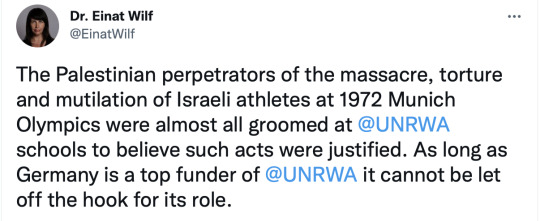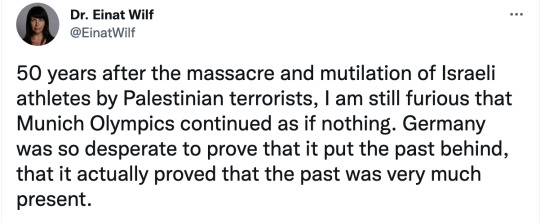#Munich massacre
Text

50 years ago, on September 5-6, 1972, 11 Israelis were killed in an attack known as the Munich Massacre. During the 1972 Summer Olympics in Munich, members of a Palestinian terrorist group stormed the Olympic Village, killing 2 members of the Israeli delegation, and taking 9 more hostage.
One of the athletes present that day was runner and racewalker Shaul Ladany who, along with 5 others, was able to escape from their apartment. Born in Belgrade, Yugoslavia in 1936, Ladany fled to Budapest with his family after their home was bombed by the Luftwaffe in 1941. His parents tried to hide him in a monastery, but they were captured and sent from the Budapest ghetto to the Bergen-Belsen concentration camp in 1944. Ladany spent 6 months there before being rescued on a train to Switzerland.
He immigrated to Israel in 1948 and went on to become a world champion, world record holder, two-time Olympian, and a renowned professor of industrial engineering. Today, Ladany is still an active racer, participating in marathons and completed the Maccabiah Fun Run in July. The 86 year old visits the graves of his Israeli teammates in Tel Aviv every year on September 6th.
May the memories of the 11 Israelis killed in the Munich Massacre - David Berger, Ze’ev Friedman, Yossef Gutfreund, Eliezer Halfin, Yossef Romano, Amitzur Shapira, Kehat Shorr, Mark Slavin, Andre Spitzer, Yakov Springer, Moshe Weinberg - forever be a blessing.
Contributor: Jill Goltzer Humans of Judaism
Joseph Waks
53 notes
·
View notes
Photo
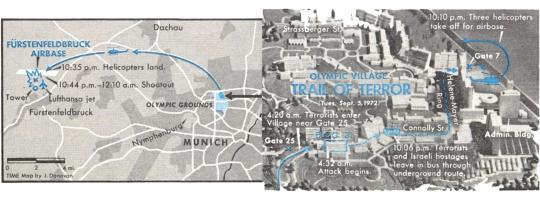
A diagram of the events of the Munich massacre during the 1972 Summer Olympics.
by TIME, 1972
42 notes
·
View notes
Text

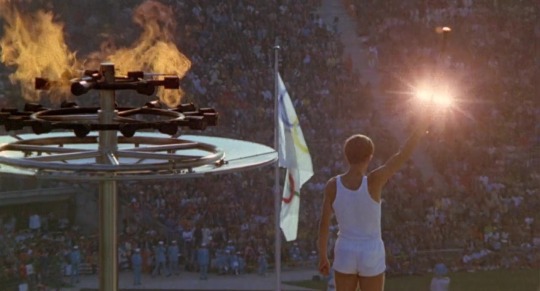

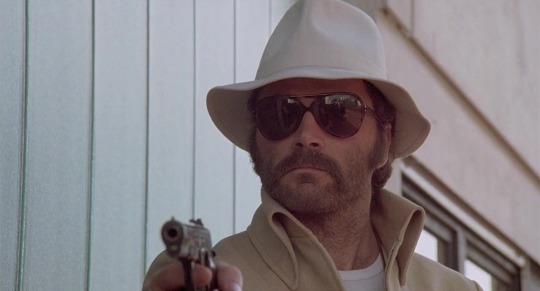


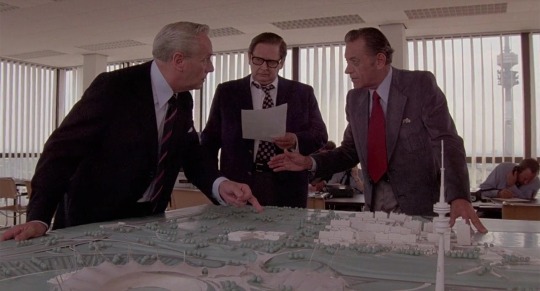
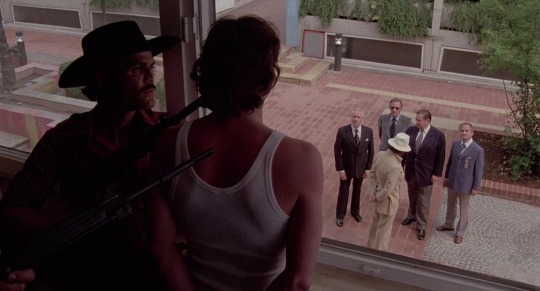
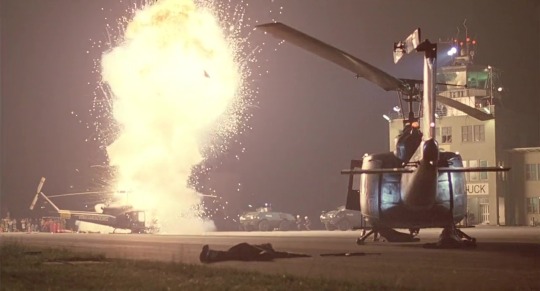
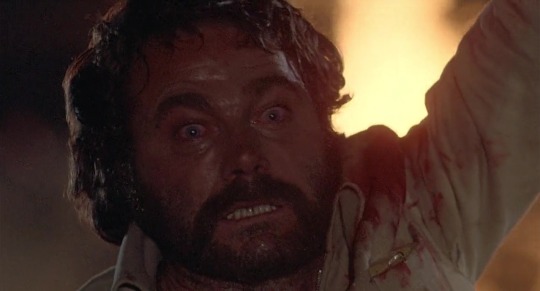
21 Hours at Munich (1976, William A. Graham)
7/3/23
#21 Hours at Munich#Franco Nero#William Holden#Shirley Knight#Anthony Quayle#Richard Basehart#Noel Willman#drama#thriller#sports#olympics#true story#terrorism#Germany#West Germany#Black September#Munich massacre#Munich#hostage#rescue#police#Israeli-Palestinian conflict#kidnapping#massacre#political
3 notes
·
View notes
Text
Today is the 50th anniversary of the 1972 Munich Olympics Massacre.
Never forget.
3 notes
·
View notes
Text
Wrath of God II: To Win, Israel Must Assassinate Hamas Leaders Everywhere
Israel’s military achievements against Hamas are impressive. As part of its campaign to destroy the terrorist group, Israel has reportedly struck over 22,000 targets in the Gaza Strip and has killed some 7,000 fighters since the war broke out.Since Israel’s land campaign began, the IDF has discovered over eight hundred tunnels, many which were located near or inside educational institutions,…
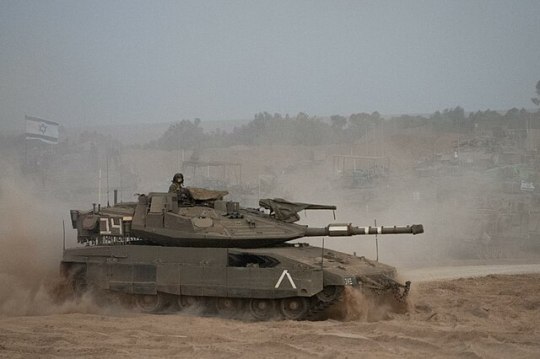
View On WordPress
#Black September#Ceasefire#Gaza Strip#Golda Meir#Hamas#Hiroshima#IDF#Ismail Haniyeh#Israel-Hamas War#Joe Biden#Khaled Mashal#Mossad#Munich Massacre#Nagasaki#October 7 massacre#Operation Wrath of God#Osama Hamdan#Pearl Harbor#PLO#Saleh al-Aaruri#targeted assassinations#terror tunnels#United Nations
0 notes
Text
2010-Abu Daoud
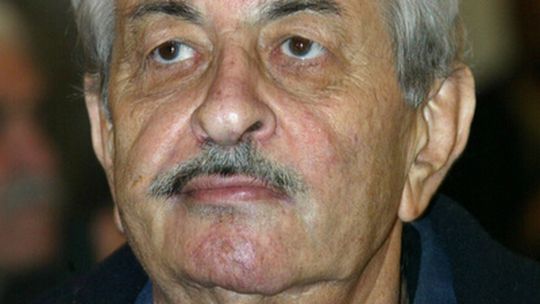
Mohammad Daoud Oudeh (Arabic: محمد داود عودة), commonly known by his nom de guerreAbu Daoud or Abu Dawud (Arabic: أبو داود) (1937 – 3 July 2010)[1] was a Palestinian militant, teacher and lawyer known as the planner, architect and mastermind of the Munich massacre. He served in a number of commanding functions in Fatah's armed units in Lebanon and Jordan.
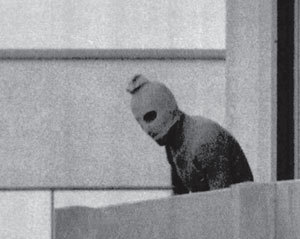
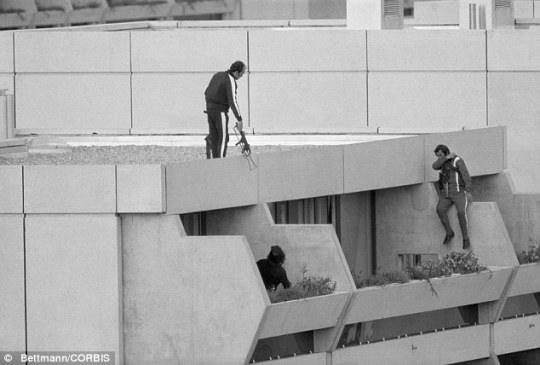
In 2006, Abu Daoud gave several personal interviews after the release of the Steven Spielberg film Munich revived discussions of the massacre. Abu Daoud remained unrepentant regarding his role in the Munich attacks, stating on Germany's Spiegel TV, "I regret nothing. You can only dream that I would apologise."[11] In an Associated Press interview, he justified the operation by claiming it was a strategic success, declaring: "Before Munich, we were simply terrorists. After Munich, at least people started asking who are these terrorists? What do they want? Before Munich, nobody had the slightest idea about Palestine."
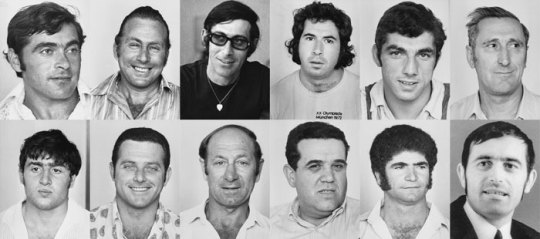
On 3 July 2010, Daoud died of kidney failure at Al-Andalus Hospital[14] in Damascus, Syria.[17] After a funeral service in the Al Wasim Mosque in Yarmouk with his coffin draped in the Palestinian flag, he was buried in the Martyrs Cemetery of the Yarmouk Palestinian refugee camp on the southern outskirts of Damascus.
0 notes
Text
0 notes
Text
The Way the Munich Massacre Affected My Life
Some anniversaries mostly provoke incredulity: to think that a year from now we will be taking note of the sixtieth anniversary of President Kennedy’s assassination seems just amazing to me. Like everybody alive then over the age of four or five, I remember just where I was when I heard about Dallas: in Mrs. D’Antona’s fifth-grade classroom in P.S. 196 on 113th Street in Forest Hills. Nor do I find it even remotely possible to believe that that more than half a century has passed since that summery evening I was lying on my back on a blanket behind one of the dormitories at the University of Vermont in Burlington on July 20, 1969, while listening to Neil Armstrong say what he said as he took his first steps on the moon. Or that 9/11 is now more than two decades in the past.
But other anniversaries, I take more personally—not necessarily because I myself had something to do with the event under consideration, but because of the effect that event had on me, on my life. And foremost in that category is the fiftieth anniversary of the massacre of the Israeli athletes in Munich in September of 1972.
I was on the far cusp of my life-long involvement with Jewish life in 1972. A mere lad of nineteen back then, I had spent more than a few summers working in Jewish summer camps and was loosely affiliated with the Forest Hills Jewish Center. (By “loosely affiliated,” I mean I went to shul there on Shabbat from time to time but without actually having gone so far as to join the congregation.) So I was still very much a work in progress in those days, at least Jewishly speaking, and had yet to formulate even a vague plan about the path I wished to take forward into the rest of my life.
I was beginning my junior year of college. I would have liked to spend that year studying in Israel—I remember sharing that thought with a few friends, but specifically not with my parents—but I didn’t qualify for the only program CUNY was offering in Israel because I hadn’t completed two years of Hebrew language instruction. (To be more specific, I hadn’t completed any.) The rule seemed foolish and counterproductive to me—the whole point of me going to Israel would have been to devote the year to working on my Hebrew—and I remember personally trying to get the sub-dean (or whoever he was) in charge of study abroad options to make an exception for me. I was unsuccessful—I don’t remember him being even remotely moved by my argument that it was crazy to deny me a chance to study Hebrew because I hadn’t studied enough Hebrew—and so had to choose between spending my junior year in France and spending it in Germany. (I had two years of both college French and college German under my belt, so was qualified for either program.) I opted for France, mostly because my parents would have had triple heart attacks if I had even suggested visiting Germany, let alone spending a year there. I understood how they felt. It was, after all, basically how everybody in my world felt back then, and certainly not just the survivor-families in our neighborhood. And I felt that way myself as well, although not entirely: I was very curious back then to see what Germany was like but unable to imagine settling in and actually living there. So it was France.
I spent a few days in Paris, then a week in Reims in some sort of preparatory course, then headed to Nancy, the city in eastern France in which the CUNY study-abroad program was located. My whole situation was strange from the get-go. I, who grew up in a neighborhood as close to 100% Jewish as they came, was suddenly living in a men’s dormitory inhabited mostly by visitors from French-speaking West Africa and Southeast Asia, most of whom were much older than I was. (There were other Queens College students in the program, but no other men. So I was on my own in the men’s dorm.) They were friendly, even very friendly, but I was clearly not in Kansas anymore: none of my three eventual best friends (one from Chad, one from Niger, and one from Laos) had ever even met a Jewish person before, let alone befriended one. And no one—literally no one at all—spoke English. (Eventually, some English guys from Leeds moved in too. But that was more than halfway through the year.) So it was clear from the start that that my life in Nancy was going to unfold in French or not at all. Eager not to have no one at all to talk to (and having no alternate plan anyway), I got to work on improving my conversational French quickly.
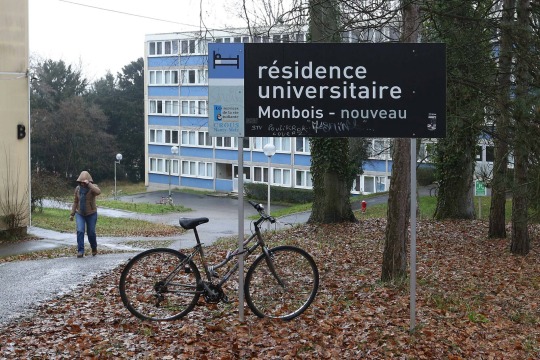
And so there I was on the morning of September 6, 1972, having a bowl of café crème (in the provincial French style) in the restaurant universitaire adjacent to the dormitory when I heard the news. My French was still very weak—two years of college French do not a fluent speaker or understander make—but I was able to glean enough from the chatter all around that there had been a terrible massacre of Israeli athletes in Munich and that none of the hostages had survived. Hearing this in a language I barely spoke, not being able at understand everything people were saying, lacking even the vocabulary to ask for more details, the one thing that was crystal clear to me was that I was the only person present who was taking this at all personally. For them—nice fellows from West Africa and Southeast Asia—this was another news item, something interesting, even shocking, that had happened, that made for interesting breakfast discussion. But no one was that engaged by the story. A radio had been playing, but the newscaster soon went on to other news, eventually to the sports and then to the weather. Breakfast ended. Everybody left and I left too. But something had happened to me in that coffee lounge, something stirring and decisive. I felt this odd mixture of alone and not-alone, of being the only Jew in the world and someone tied viscerally and profoundly to the Jewish people, of being outraged by the horror of the Munich massacre and deeply engaged by the thought that the Jewish people are as alone in the world as I personally was in that student dining hall on the Boulevard de la Libération in Nancy. It was, to say the least, a strange moment.
The next few days altered my life. I found my way downtown. I located a store on the Rue St. Dizier that sold international newspapers. I bought a copy of the International Herald Tribune and some French newspapers I could peruse at my leisure with a dictionary in my dorm room, plus—amazingly—a copy of Omer, an Israel newspapers printed specifically with lots of vowel signs and easy vocabulary for new immigrants. Why the Halle de la Presse carried such a thing or for whom, I have no idea. But they did carry it and I bought a copy, then headed back to my dorm room to try to decipher it. I only partially succeeded.
But the die was cast. Or at least for me it was. The next day, I dropped all the courses in French and German that I had been pre-registered for by my masters at CUNY, and registered instead for every Hebrew course offered by the university in Nancy. And that Friday night I found my way to the synagogue of Nancy on the Boulevard Joffre and—with some combination of trepidation and excitement—stepped inside. (The synagogue in Nancy, built in 1788, is the second oldest still-functioning synagogue in France. So it wasn’t even remotely like stepping into an American synagogue—even the smell of the place, not unpleasant but wholly unfamiliar—suggested its age to me.)
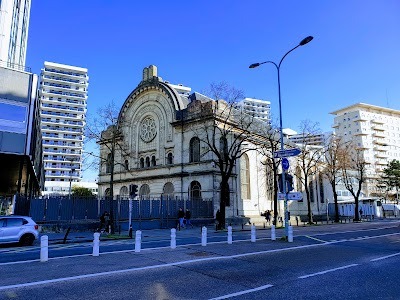
The synagogue was like nothing I had previously experienced. Men sat downstairs, women up in the balcony. The entire service was mumbled in Hebrew. The one or two hymns sung aloud were sung to melodies I hadn’t ever heard and didn’t know. No page numbers were announced. You either knew where we were or you didn’t. But I somehow didn’t feel as alone or at sea as you’d think I should have. And after the service, people—and lots of them—came up to me and introduced themselves, told me to feel welcome, did what they could to make me feel comfortable. One young man my age invited me to Shabbat dinner with his family a few blocks away. I went. (I had no other place to go and had at any rate missed dinner at the restaurant universitaire.) I came back the following morning and was given an aliyah. I could almost feel the ground shifting under my feet as my life plans subtly altered.
Eventually, I learned the whole horrific story of the massacre in Munich, about the ham-fisted German attempt to rescue the hostages that led to their deaths, about the in-retrospect-insufferably-arrogant refusal of the German authorities to let the Israeli security team take over. I learned the names of the victims too, taking each death as a personal loss. (I even cut a photograph of the twelve victims out of one of the French papers and taped it to the bulletin board over my desk, where it stayed for the whole year I lived in that room.) I became a regular at the synagogue. I took each of my classes enormously seriously. I stayed friends with my dorm-buddies, but acquired a parallel set of friends in the Jewish community. And when I returned to New York a year later, the path I wished to follow in life had opened up before me.
0 notes
Text
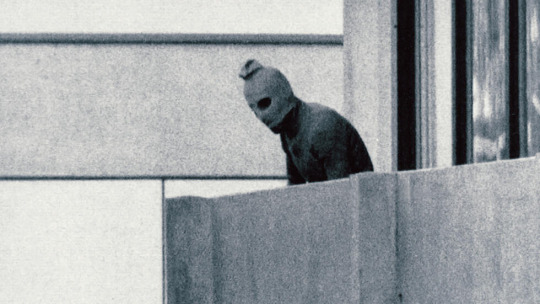
Munich Games Massacre
The Munich Games marked the first return of the Olympics to a German city since the 1936 Games in Berlin. Adolf Hitler’s use of those Games as a platform for the propagation of Nazi ideology was roundly criticized, as was the blatant racism and anti-Semitism that characterized the Games. The West German invitation had been extended, in part at least, to offer the world a contrast to the horrifying spectacle of Berlin.
For more than a week, the Games unfolded without incident. The day of terror began at 4:30 AM on September 5, 1972, when eight Palestinian militants affiliated with Black September—a militant offshoot of the Palestinian group Fatah—scaled a fence surrounding the Olympic Village in Munich. Disguised as athletes and using stolen keys, they forced their way into the quarters of the Israeli Olympic team at 31 Connollystrasse. As they attempted to enter Apartment 1, they were confronted by Yossef Gutfreund, a wrestling referee, and Moshe Weinberg, a wrestling coach. Weinberg was shot while fighting with the attackers, who forced him at gunpoint to lead them to the rooms of the remaining Israeli coaches and athletes. It has been proposed that Weinberg led the attackers past Apartment 2—which was also being used by the Israeli team—because he believed that the wrestlers and weightlifters in Apartment 3 would be better able to fight back. However, Black September had detailed plans of the Olympic Village and the dispositions of the Israeli athletes. Shaul Ladany, a race walker who survived the attack after escaping from Apartment 2, suggested that it was much more likely that his room was bypassed because he was housed with members of the Israeli shooting team. The terrorists had struggled to subdue the unarmed men in Apartment 1; it is unlikely that they had wished to engage in a close-quarters gun battle with world-class marksmen in the opening minutes of their operation.
In Apartment 3 the terrorists gathered more hostages and forced them back to Apartment 1. Wrestler Gad Tsabari broke from the group and dashed down a flight of stairs toward an underground parking garage, and Weinberg took advantage of the confusion to again fight the attackers. Weinberg had nearly gained control of a terrorist’s gun when he was shot and killed. Despite being on crutches due to an injury during competition, Yossef Romano, a weightlifter, also made an attempt to disarm one of the terrorists. Romano was killed and his mutilated body was left on the floor of Apartment 1 as a warning. While two Israelis lay dead in the Olympic Village and nine others were being held hostage, International Olympic Committee (IOC) chairman Avery Brundage insisted that the games continue. The terrorists demanded the liberation of more than 200 Palestinians held in Israeli prisons, the release of Andreas Baader and Ulrike Meinhof of the Red Army Faction from German prisons, and the provision of an airplane to fly them to a safe destination in the Middle East. While negotiations were ongoing, a planned rescue attempt had to be called off when it was realized that actions of West German police were being broadcast live to nearly 1 billion people around the world and to the many televisions throughout the Olympic Village. At about 10:00 PM on September 5, believing they had reached an agreement, the terrorists led their bound and blindfolded hostages from their quarters into buses that transported them to waiting helicopters.
The helicopters carried them to Fürstenfeldbruck Air Base, 15 miles (25 km) west of the Olympic Village, where police were lying in ambush. Although the German army had better training and equipment for such a mission, under West Germany’s postwar constitution, the armed forces were forbidden from aiding the civilian police. The police snipers used in the operation had not received formal training as sharpshooters, they were improperly placed and inadequate in number, and they lacked radios to communicate with each other or with commanders. In addition, they were armed with assault rifles rather than sniper rifles, and their weapons had neither long-range scopes nor night-vision capability. On the air base tarmac was a Boeing 727 filled with 17 police officers disguised as a Lufthansa flight crew. It was intended that these officers would subdue the terrorists once they had boarded the plane, but the police unanimously chose to abandon their posts. Armoured cars that were to have aided in the rescue of the Israelis were dispatched too late and became stuck in traffic. With myriad failures in both planning and execution, the result was a disaster on virtually every level.
The helicopters arrived about 10:30 PM, and two terrorists went to inspect the jetliner. Finding it empty and becoming aware of the deception, they shouted to their comrades, at which point West German police fired upon them. A gun battle ensued, and several terrorists and one police officer were killed. The helicopter flight crews ran for cover, but the Israeli athletes were bound together and trapped. After the initial fusillade, in which the terrorists also shot out the floodlights that had been illuminating the tarmac, the scene settled into a tense stalemate punctuated by sporadic gunfire. Onlookers surrounded the airfield, and sportscaster Jim McKay, who was anchoring Olympic coverage for the U.S. network ABC, provided television viewers with preliminary updates. At midnight, a German official announced that all the hostages had been freed and all the terrorists had been killed, a report that proved to be tragically premature. Just after midnight, a terrorist tossed a hand grenade into one of the helicopters, killing all but one of the Israeli hostages aboard; David Berger, an American-born wrestler, succumbed to smoke inhalation before rescue personnel could reach him. A second terrorist sprayed the interior of the other helicopter with bullets at close range, murdering the five remaining Israelis.
Too late to aid in the rescue effort, the armoured cars finally reached the runway, but their crews had no knowledge of the deployment of police personnel in the field and no way to communicate with them. A gunman ran toward a position where one of the helicopter pilots and a police sniper had taken cover. The terrorist was shot and killed by the sniper, but the movement on the darkened runway drew fire from one of the armoured cars, and both the pilot and sniper were seriously wounded by friendly fire. By 12:30 AM on September 6, the shooting had stopped, and the 20-hour reign of terror was over. Eleven Israelis had been killed, along with one Munich policeman, and five Black September terrorists lay dead. Three of the gunmen were captured. At 3:00 AM McKay, who had been broadcasting from the Olympic Village for 14 straight hours, summarized the tragic outcome of the botched rescue with the words “They’re all gone.” For the first time in history, the Olympic Games were suspended, for 24 hours, in tribute to the murdered athletes.
17 notes
·
View notes
Text
I’m not sure if this will interest anyone, but since @eddiediass located the movie (Black Sunday) that inspired the s6 opening disaster, and because I know a few people were wondering how much of the movie would the show adopt...
I ended up watching the movie. I realized even before I started watching, when I just read a short plot summary, that it was very much shaped by the current events of the time, the 1970′s. That made me wanna look up some background info on how the movie came to be, which was kind of perfect as my vertigo makes it difficult to watch anything without pauses. In case you don’t know, the movie is about a Vietnam vet joining forces with a Palestinian terrorist to carry out a terror attack in the form of them crashing a blimp into a stadium. The novel that the movie is based on was published in 1975, the same year the Vietnam war ended. That was also the same decade when Palestinian terrorists were often kidnapping international flights in order to hold the passengers hostage for all sorts of demands (money, fellow terrorists released from prisons all over the world, etc).
So yeah, that kinda played out in the back of my mind. The airplane jackings, the most famous of which ended with the successful Entebbe rescue operation in 1976, where the Israel Defence Forces (IDF) managed to free the hostages despite having to travel 2,860 miles to do so. The Ma’alot massacre in 1974, when Palestinian terrorists infiltrated Israel from Lebanon and took a bunch of kids sleeping in the local school hostages. The IDF tried to free them, but were only partly successful, and ultimately this ended with the murder of 31 civilians in total. Most of them were kids. Just consider having that in the back of your mind as you fly across 2,860 miles to free Israeli and Jewish hostages (all the non-Jewish passengers were released by the terrorists), asking yourself whether you’ll succeed every step of the way.
But the terrorist attack that actually first jumped out at me when I was reading the summary was the 1972 kidnapping and subsequent massacre of 11 Israeli Olympic athletes by Palestinian terrorists at the Olympic games in Munich. Funnily enough, I was just recently thinking about One Day in September, an Oscar winning documentary about this massacre. I believe it’s one of the best documentaries I’d ever seen, for several reasons, including the fact that it revealed some truths and failures of the German government a lot of people were not aware of. Sep 5, 2022 marks exactly 50 years since that massacre. It’s only now that the German government is going to officially take responsibility for the Munich massacre and compensate the families of the victims. So since it’s been on the news, I’ve been thinking about that excellent documentary and would like to rec it to everyone. If you don’t take anything else from this post, please watch this documentary, it shook me to my core.
Oh, another reason why this massacre has been on the news recently is that in August, Mahmoud Abbas, president of the Palestinian Authority, was visiting Germany. He was one of the men who helped the Munich massacre happen. During a press call with the German chancellor, he was asked whether he would apologize to Israel and Germany for that attack (the journalist didn’t mention Abbas’ personal part in the massacre). In response, Abbas blamed Israel of having committed “50 Holocausts”.
Anyway, turns out my first thought was right on the mark. Apparently, the novel was written in reaction to the massacre of the Israeli athletes in Munich. In fact, the Palestinian terrorist group that carried out the Munich massacre, Black September, was explicitly named in the film as being the one putting together the blimp terrorist attack. And in fact, it had to be a serious terrorist organization behind it, since in the movie, it’s not just the blimp that’s about to be crashed into the stadium, the attack also involves setting off explosives and over 220,000 rifle darts from the blimp.
Other things that stood out to me were the inclusion of a Japanese terrorist (this is probably in reference to the collaboration of Palestinian terrorists with the terror organization The Japanese Red Army, which carried out in Israel the 1972 massacre at Lod airport, where 25 civilians were murdered) and mentioning Libya financing the attack (something I only found out recently, while watching a documentary about the Libyan tyrant, Muammar Gaddafi, is that he did in fact finance, among other terrorist acts, the Munich massacre). There was one character I was baffled about. The Israeli Mossad agent looking to stop the attack turns to a Colonel Riat for help. The Israeli agent mentioned an Egyptian “expelled by you”, so at first I thought maybe this colonel was Jordanian. After all, ‘Black September’ was initially set up to take revenge on the Jordanians who in September 1970 killed and expelled thousands of Palestinians due to the attempt by the Palestine Liberation Organization (a terrorist organization back then led by Yasser Arafat) to seize power in Jordan, an event referred to as “black September”. But checking out some info online, it seems like this man was supposed to be an Egyptian, which makes a lot of what he says to the Israeli Mossad agent either not make sense or come off as incredibly hypocritical. TBH, even beyond what he says, it makes less sense for the Mossad agent to go off the record to an Egyptian for help in identifying a Black September terrorist, than to go to Jordan, which had a great interest in seeing Black September fail. This stood out to me especially after I’ve recently learned from a documentary about Jordan’s King Hussein that when the Syrians were moving to aid the Palestinian attempted coup, he secretly turned to Israel for help in stopping the Syrians from invading Jordan.
Now is the movie good? Maybe the novel is. I can’t read it (thanks again, vertigo), so I can’t tell you for sure. But the film is def lacking. While somewhat historically interesting in tying together all of these events, and considering what’s accurate and what’s not, the overall movie is just really weak. It takes time to even figure out who we’re meant to identify with, we find out so little about the characters and get even less about where they are emotionally, so it’s hard to cheer for any of them. The subjects are topical for the 1970′s, though blending together the mistreatment of Vietnam vets with the Palestinian terrorism plot took a lot out of the impact that the former subject could have. And at the same time, the look at the terrorist attack is used as a plot device to create tension, but without any seeming real care for this complex subject. The movie just ends up having absolutely nothing to say of any substance. The action might have been good if any of the events carried any emotional significance, beyond the general “killing lots of people is bad, gotta stop that.”
Anyway, given the international, complex threads of the original movie, which 911 isn’t generally interested in, and given how they’re handled in the movie without any heart, which is again so different to how our show cares about its main and even incidental characters, I really don’t think they’ll be borrowing anything from the movie other than the concept of a blimp disaster. Which is a bit of a shame, because as Dev mentioned, the vet not properly coping with trauma could have been a goldmine. Not in the way that movie deals with it, though. In short, I watched this movie so you don’t have to.
#911 spoilers#9-1-1#911 meta#kinda#911meta#911 speculation#911 season 6#911#i'm scheduling this to post#on sep 4#a day before the ceremonies in germany#to commemorate 50 years since the munich massacre#911 bts#israel#antisemitism#jewish#911onabc#911 on abc#911abc#911 abc
14 notes
·
View notes
Video
youtube
1972 Olympics: The Munich Massacre | History of Israel Explained | Unpacked
12 notes
·
View notes
Text
1972 Munich Olympics massacre: ‘I will never shut up’
1972 Munich Olympics massacre: ‘I will never shut up’
A NOTE ABOUT RELEVANT ADVERTISING: We collect information about the content (including ads) you use across this site and use it to make both advertising and content more relevant to you on our network and other sites. Find out more about our policy and your choices, including how to opt-out. Sometimes our articles will try to help you find the right product at the right price. We may receive…
View On WordPress
0 notes
Note
I remember when I first started reading into the Israeli-palestinian conflict history and I learnt that Israel was attacked by every Muslim neighbour country...and that it was Arabs who repeatedly rejected any attempt for a compromise or a two state solution.... I felt so deceived cause how is Israel the bad guy here? Should Jewish refugees (from Europe and the Middle East) either stayed where they were and died or happily agreed to live in an arab nationalist country and died? Is there any acceptable scenario where Jewish people can live without fear of persecution without being framed as the devil incarnate??
Thats a convenient fact everyone likes to forget. They also like to forget about how in Jordan, which was meant to be the Arab state alongside Israel, has its Palestinian population still in refugee camps. Not because of Israel, but because they suffered terrorist attacks, their royal family was nearly assassinated, and their prime Minister was assassinated by palestinian terrorist group Black September (you know, the ones who did the Munich Olympics massacre).
They also love to ignore that collectively the middle east holds over half the world's oil reserves and not a single Arab country is responding to Gaza's request for fuel.
They also like to forget that Egypt closed its borders to Gaza, not because they hate Palestinians or because Israel told them to, but because they also experienced terror attacks and their prime Minister was also assassinated by a palestinian terrorist organization because he agreed to "cold peace" with Israel in exchange for the Sinai peninsula.
Anyway I encourage people to ask questions about why the rest of the Arab world doesn't help Palestinians (specifically Jordan, Lebanon, Egypt, Syria), doesn't give them proper citizenship, why when Israel was attacked by multiple Arab countries at once not one of them said they if they won that they would call the land Palestine, and how Israel can still be considered occupying Gaza if all Jewish and Israeli presence was pulled out 20 years ago. Go find the answers yourselves.
750 notes
·
View notes
